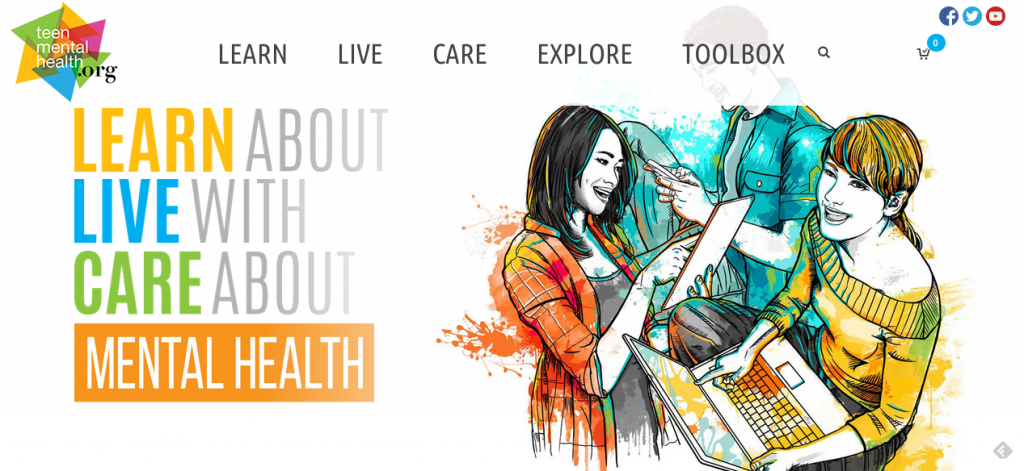Screen shot from TeenMentalHealth.org
With the latest research telling us that the number of young people aged 15-16 with depression has nearly doubled over the last twenty years, it’s more important than ever for us to be addressing it in our health classes. But as we do, we need to make sure we’re armed with the correct information and a variety of resources for our students if and when they come to us for support.
The best defense is a good offense, which is why the core of any health curriculum should be healthy coping skills. Meditation, journaling, stress management, recognizing and expressing emotions, these should all be taught from a very young age as ways to help strengthen our mental health.
As we all know though, some stressors are just too much to deal with on our own – regardless of how we cope – so it’s a good idea to provide the kids with tools that they can call on when they need some extra guidance for themselves or for their friends.
That’s why it’s so important for all of the kids to develop a relationship with their school counselors… and we shouldn’t wait for a crisis to occur for that to happen. Having them come into the classroom and do a lesson on stress or mental health can be just the push a student who is struggling might need to feel comfortable enough to get in the door for a visit.
Of course, as much as we would prefer that the kids go straight to a trusted adult, more often than not, they’ll turn to each other, or the internet, with their questions first. When that happens, having a few trusted sites on hand can make all the difference in the world.
TeenMentalHealth.org is a great place to start. They’ve got a toolbox full of resources for all sorts of mental health concerns, and the website is well designed, making it appealing to teenagers.
They’ve also got resources for teachers and parents too, which can definitely come in handy.
There are a ton of great resources out there, and spending some time exploring them as a class can help open up the conversation, while supplying the kids with reliable places to go to when they need some extra help and support.
For additional mental health resources and lesson plans, check out…
From the Center for Addiction and Mental Health: Talking About mental illness: Teacher’s resource guide.
There’s also Young Minds from the UK and Kid’s Help Line from Australia… both great programs with a lot of useful tips.




